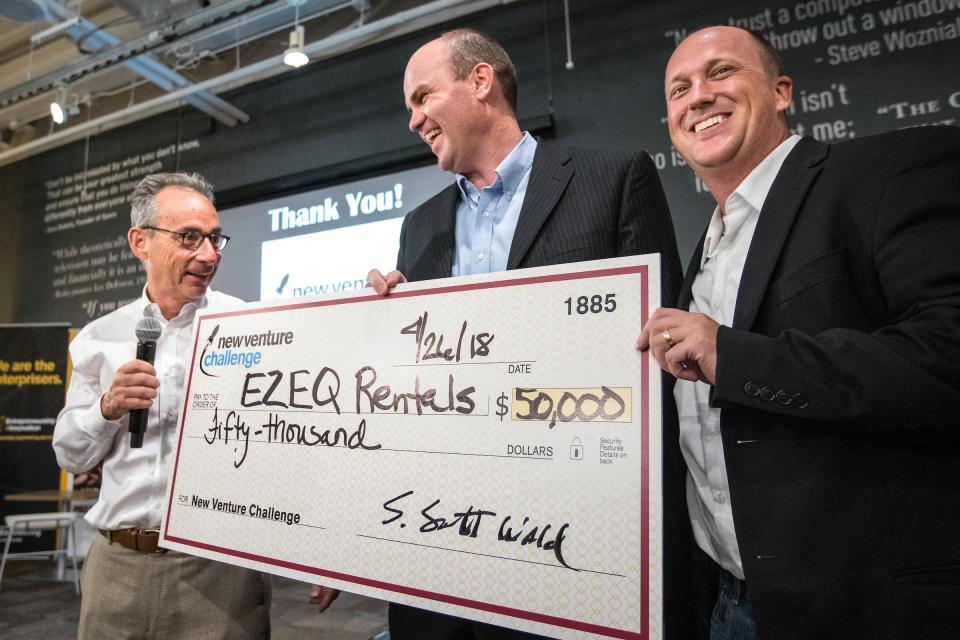Sometimes it takes only a little bit of money to nurture big dreams.
Nearly 100 teams of entrepreneurs pitched their projects during Demo Days last week, hoping to get a few thousand dollars to advance their projects.
In all, more than $300,000 in cash and services was awarded to dozens of teams in Venture Devils, a program in the office of Entrepreneurship + Innovation at Arizona State University that provides space, mentorship and access to funding to entrepreneurs who are ASU students, faculty, alumni or community members. The event combined eight funding competitions.
Some ventures were highly technical and will need hundreds of thousands of dollars to eventually get off the ground, like an automated waste-sorting machine, while others solve smaller-scale problems, like a $12 plug that will keep hair from clogging pipes, invented by two long-haired siblings.
The waste-sorting project, called Hygiea, won $2,000 from the Pakis Social Venture Challenge, and the siblings, Holly Hillsten and Justin Hillsten, won $8,500 for DrainFunnel in the Edson Student Entrepreneur Initiative. Both are undergraduates in the W. P. Carey School of Business.
Many of the teams that won the largest amounts of funding have been working for years on their projects. Ryan Stoll, co-founder of Compass for Courage, won $20,000 in the Pakis Social Entrepreneurship Challenge. He has been working for seven years on the project as part of his PhD training. Compass for Courage makes an interactive curriculum for children that uses board games to help them learn skills to overcome anxiety. The program is already used in 26 Arizona schools.
Hoolest Performance Technologies, made up of three students, has won several funding competitions since it was founded less than two years ago. On Friday, Hoolest won in two categories: A $12,500 prize from the Edson Student Entrepreneurship competition and a trip to the Portland, Oregon, headquarters of adidas for mentoring, from the Global Sport Venture Challenge contest.
The venture, which makes earbud devices that block stress by stimulating the vagus nerve, has won more than $110,000 in two competitions in the past year. The idea was launched by Nicholas Hool, a biomedical engineering PhD student who suffered from performance anxiety while he was a nationally competitive golfer in high school. He said the device, now being tested in professional athletes, could eventually be used to help people manage symptoms of opioid withdrawal.
